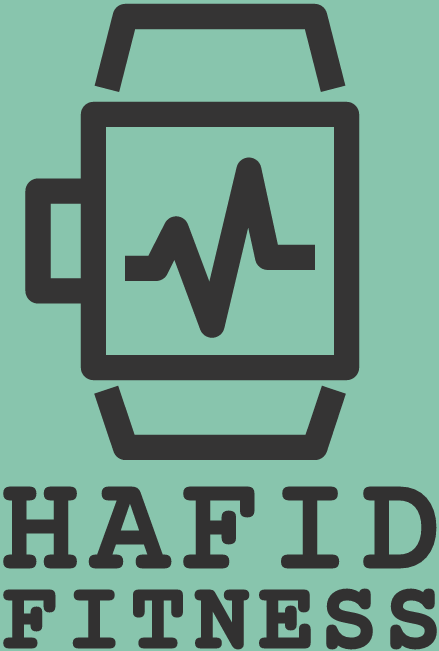Hydration Is KEY
Surely if you entered this post it is because you are curious about this silent problem or you feel that perhaps this is what is affecting you every day, no matter what the reason, the fact of entering our page may have been a before and after in your life!
Many people underestimate the importance of good hydration in their daily lives, leading to health problems that would be avoidable if they only made drinking water a tiny habit in their daily lives. For this reason, today we will dive into various tips, solutions, and explanations about this phenomenon, so stay tuned to find out!
What is dehydration and how does it affect the body?
Dehydration occurs when the body loses more fluids than it consumes. When this happens, the body does not have enough water to function properly, which can lead to various health problems.
One of the first symptoms of dehydration is thirst. If the body does not receive enough water, saliva production decreases, causing a dry mouth. As dehydration worsens, the blood becomes thicker, making it harder for the heart to pump blood through the body. This decreased blood flow can cause dizziness and fainting.
In addition to a lack of water, the body also loses important salts and minerals during dehydration. These elements are necessary for the proper functioning of muscles and nerves. Its loss can cause muscle cramps, weakness, and fatigue.
How to prevent it?
The obvious answer is clear, drink more water! But this is just one of the things that can be done together to prevent this type of situation, here we will give you more tips so that you can help prevent it from happening to you or someone else.
- Don’t wait until you’re thirsty to drink water. Sometimes thirst is not a good early indicator of dehydration. Keep a bottle of water handy (we recommend a bottle that can stay cold during the whole workout session) and drink regularly throughout the day!
- Reduce or avoid alcohol. Alcoholic beverages can increase fluid loss. Opt for water or infusions instead of alcohol1.
- Maintain a proper diet. Include foods rich in water, such as fruits and vegetables. Also, avoid very salty foods, as they can increase thirst1.
- Protect your skin from the sun. Use appropriate sunscreens and seek shade when you are outdoors. Prolonged sun exposure can increase dehydration.
- Avoid outdoor exercise during times of extreme heat. Whenever possible, do physical activities during cooler times of the day!
- Wear cool, light clothing. Opt for breathable fabrics and light colors to help maintain adequate body temperature.

How Can It Affect Us During Our Workouts?
Now that we know what it is and how it affects our body, we can start thinking about this problem from a sporting point of view. Dehydration, among many things, reduces muscle strength, performance, mental function, motor skills, and tolerance to heat and, in my opinion, the worst, it delays our muscle recovery so this set of things is why it is so important to stay hydrated in the room or place where we are doing our physical activity of choice.
Benefits Of Good Hydration
Proper hydration, whether through water or specialized replacement beverages for athletes, plays a crucial role in aiding the body’s recovery before, during, and after physical activity. Sports drinks are specifically formulated to supply essential electrolytes to our bodies. These electrolytes include sodium (in the form of sodium chloride or sodium bicarbonate), as well as glucose or sugar. Additionally, many sports drinks contain potassium and other essential minerals.
- In sports, being hydrated improves performance. A top athlete knows that the first step to reaching their objectives is to maintain proper hydration. particularly when discussing prolonged or high-intensity activities.According to objective figures, you can lower your athletic performance by as much as 5% if you sweat out two or three percent of your body weight.
- Sufficient hydration facilitates waste removal. Sport hydration not only helps to cool our bodies but also works closely with our excretory system. And it does so by getting rid of waste products and contaminants that are present in our bodies.Not only does enough hydration help us perform better physically, but liquids in general help in the removal of waste products produced by the body during metabolic processes.
- Staying hydrated helps our bodies avoid getting hurt. Our joints requires the lubrication that liquids provide. Similarly, it helps ensure that nutrients are distributed appropriately. In sports, being hydrated helps us avoid cramps, exhaustion, and, of course, potential injury.
- We stop the aging process early. As we’ve previously seen, staying hydrated while participating in sports keeps our joints lubricated. Similarly, it helps our textiles retain their ideal density and structure.The most crucial aspect, though, is that during our training, we will not only be strengthening every muscle in our body, but we will also be preventing aging. It’s common knowledge that wrinkles on our skin are mostly caused by chronic dryness.
- We turn on the energy-producing enzymes. You already know that the body uses enzymes to convert nutrients into energy. In sports, being hydrated facilitates the activation of these enzymes, optimizes the metabolic process, and provides us with the energy required to complete the activity.
- We are boosting body temperature management. It’s also critical to maintain proper hydration in order to maintain a balanced and well-regulated body temperature.
Conclusion
Hydration isn’t just about sipping water when you’re thirsty; it’s a critical factor that directly impacts your athletic performance and overall well-being. Whether you’re a seasoned athlete or a fitness enthusiast, understanding the science behind hydration can make a significant difference in achieving your fitness goals.
Stay informed, motivated, and inspired! Subscribe to our weekly newsletter and receive valuable tips and updates on fitness, nutrition, and overall well-being. Don’t miss out on turning your inbox into a treasure trove of knowledge and inspiration. Subscribe now and join our vibrant community.
For even more insights, explore our insightful blog posts covering diverse topics like growth mindset, parenting, finance, and much more!





